Despite their 1-0 loss to Chesham this weekend, can Merthyr’s model of fan ownership provide a valuable alternative to modern football?
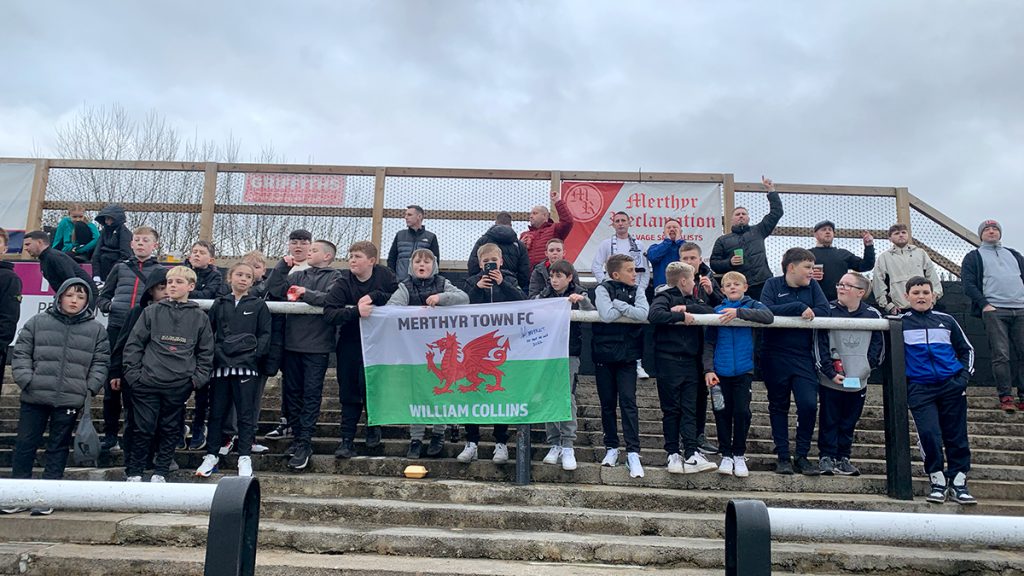
“Keeper you stupid wanker, you should be off,” came a shout from behind the goal.
“You’d want to go to Specsavers mate,” replied the Chesham goalkeeper after a heavy collision with a home player late in the second half.
Standing on the old terraces of Penydarren Park you could be forgiven for thinking that you had slipped back in time to a bygone era, greeted by the pungent smell of frying oil, vinegar and spilled beer, all accompanied by breathtaking panoramic views of the Brecon mountains.
“You can walk around here with a pint in your hand and a cob of chips in the other, you can shout at the players and they might turn around and shout back, you can’t do that in Cardiff or Swansea,” said Mark Evans, vice chairman of Merthyr Town football club.
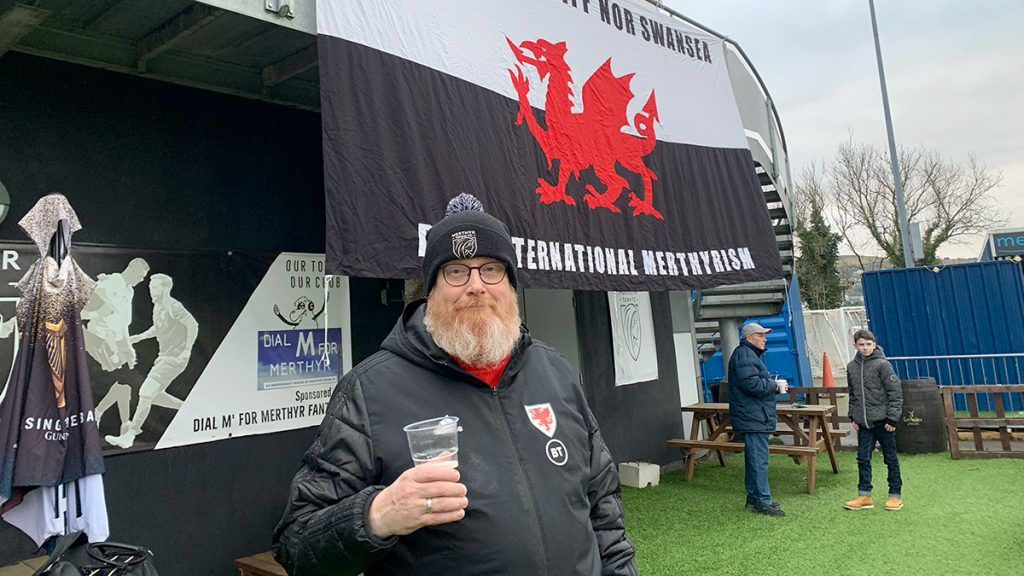
Merthyr Town FC was re-formed in 2010 from the ashes of its administration in 2009, a club saved by its supporters, that today acts as a hub of its community.
“We had an absentee chairman who was quite maliciously running our club into the ground, our Supporter’s Trust put our own club into administration becoming its creditors, which allowed us to protect it,” explained Mark.
“In 2010 we reformed as a fan-owned club making this our 13th year, we now have about 200 owners and they’re spread across the world.”
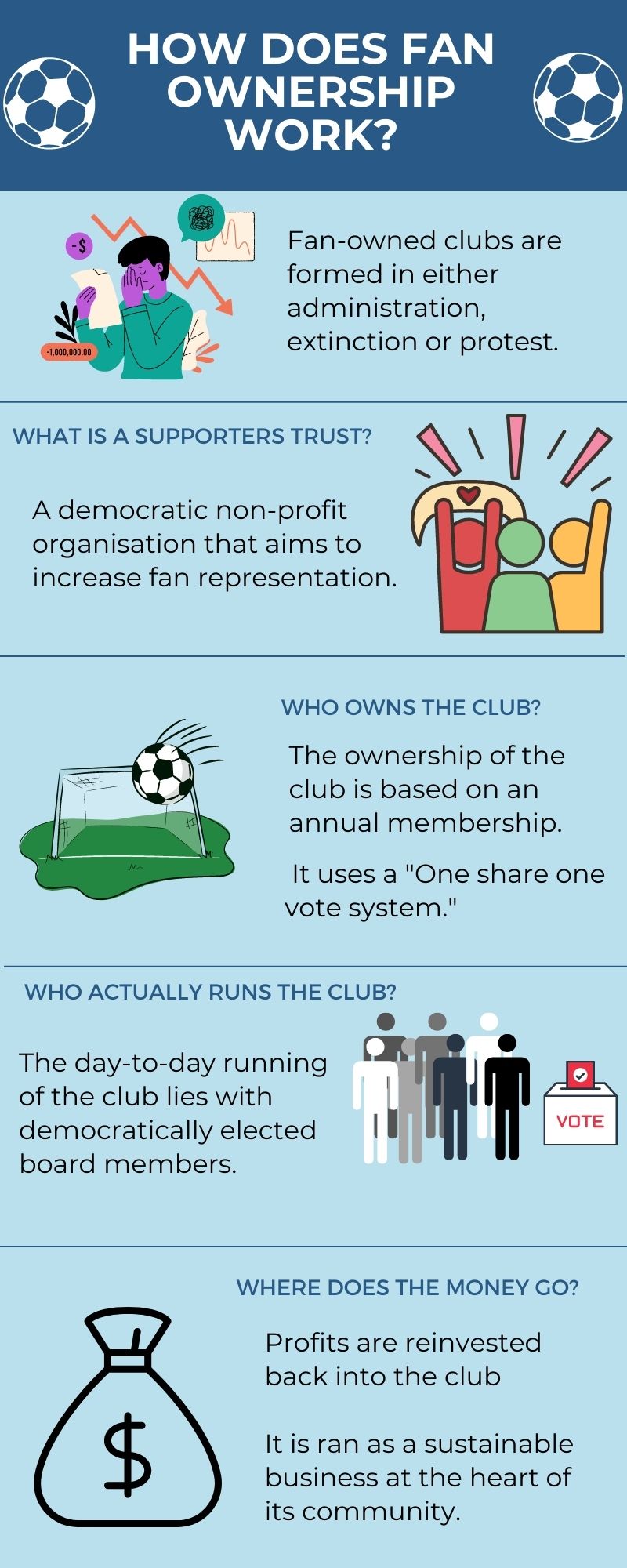
“You can be an owner here for 20 quid which allows you a say in how the club is run, the board, AGMS, elections, and so on,” said Mark.
“Everything is democratic, at any point the members can say, ‘hang on, we don’t like Mark Evans, his beard is too long, he’s got to go,’ and that will be the end of it, that’s the beauty of supporter ran football.”
“The best thing about being fan-owned is that we can engage directly with supporters,” he said. “If you don’t like something it can be highlighted and changed, you can’t do that in the Premier League, all you can do is sit there and complain.”
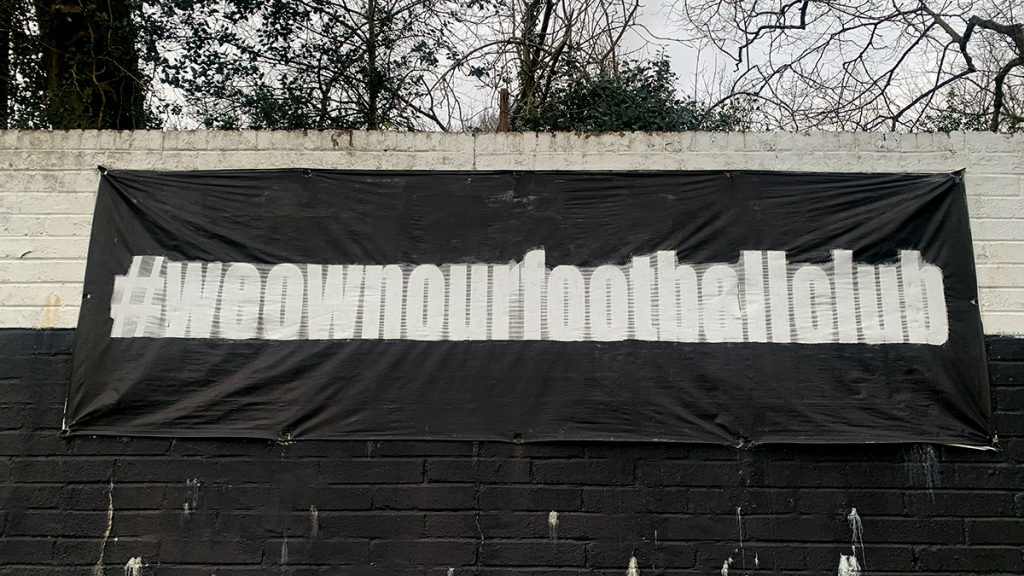
Merthyr Town offers a retro match day experience that feels like a throwback to a former time.
“I think it’s more real, more accessible and it’s more fun,” Mark said.
“Most people will have a few pints in town, have a few drinks here in the clubhouse, meet their mates, and head out onto the terraces, it’s a very old-fashioned football day, like how football was in the 70s and 80s and that’s what we want to sell to people”
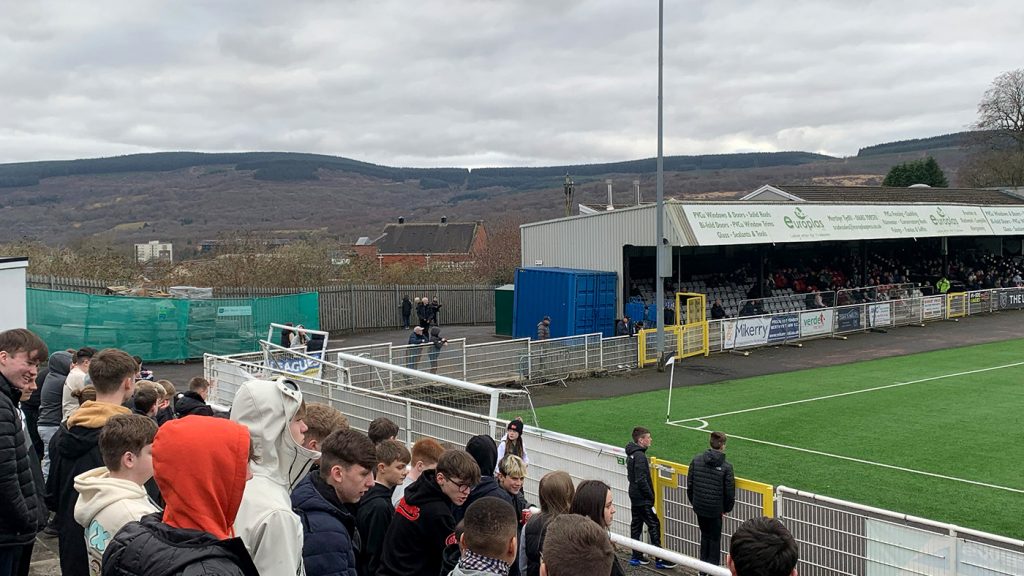
“When we go on an away day we’ll get to the other team’s ground, go into their clubhouse, have a few drinks with their fans, go on the terraces, sing a few songs, and then swap ends at half-time.”
“There’s no bubble trips or police escorts, it’s honest football for real football fans and in my view a far better product,” Mark explained.
The club also operates as a community beacon in a town that has suffered greatly from industrial decline since the 1970s.
“As a football league club we help to shine a light on Merthyr as a town, we did a survey a few years back and we’re worth about £750,000 to the town per year,” Mark said.
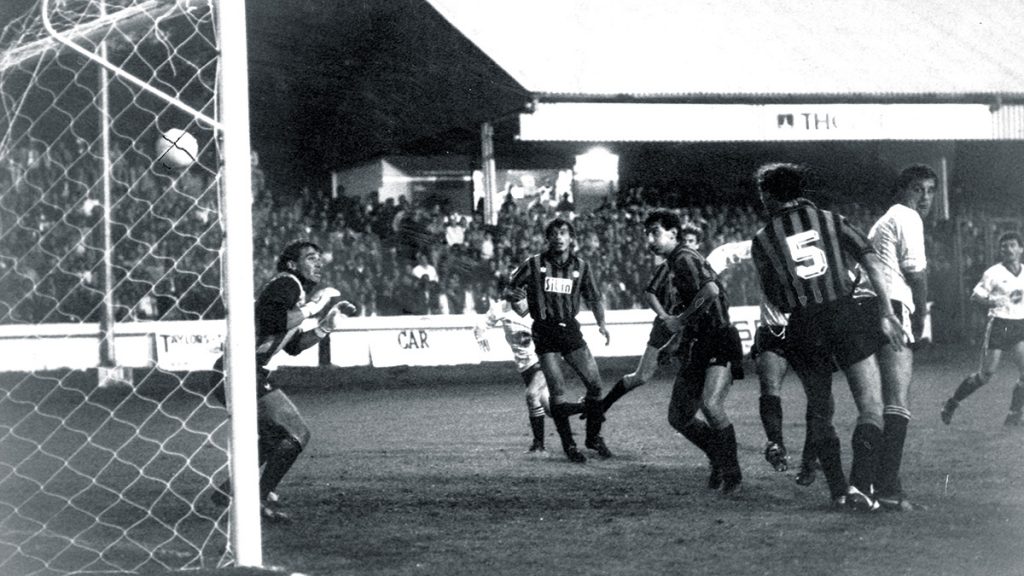
“We’ve got walk-in football every week where people come down and have a kick around and a cup of tea, we do mental health days, and we’ve just started a sporting memories initiative where people with Alzheimer’s can come down and talk about the old days,” he explained.
“The club can be chaotic and the best of times, anarchic too, but it’s friendly and it’s all about the community.”
“If you come in today and say I want to do a car boot sale next week, we’ll say go on then, you don’t have to ask anyone, just go and do it,” said Mark.
In February 2021, Wrexham, another non-league fan-owned Welsh club, was taken over by Hollywood superstars Ryan Reynolds and Rob McElhenney.
Much like Merthyr, Wrexham supporters saved their club from the brink of extinction in 2011 but with their new investment the club is witnessing somewhat of a rebirth.
“Being fan owned there will always be a glass ceiling, that’s what they found out in Wrexham, at the end of the day it’s all about finances.”
“Our ethos is ‘progress through stability’, we don’t want to go boom-to-bust, we want to be a sustainable focal point of our community for years to come.”
